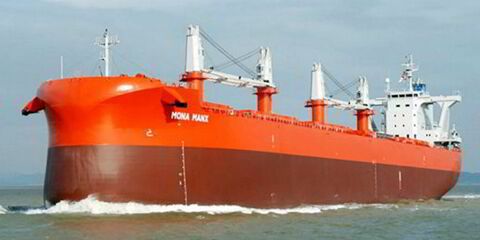A categorical aversion to fossil fuels is holding back pragmatic efforts to manage the energy transition in shipping, leading investors and finance figures told an Oslo panel.
All-or-nothing thinkers who reject all fossil fuel-related investments are “the most disappointing stakeholders we deal with”, said Jan Erik Klepsland, investment director of John Fredriksen-controlled Seatankers Management.
“They think of shipping and oil and gas as tobacco,” he said.
But paradoxically, their “just say no” approach is unhelpful to asset investors and operators in making sustainable investments, he and other panellists said.
Klepsland was part of a Marine Money conference panel this week along with Christoph Toepfer, chief executive officer of Borealis Maritime, and Dag Klaveness, global head of ocean services at DNB Bank.
Former DNB banker and professional board director Kristin Holth convened the panel.
It opened the Marine Money Norway Ship & Offshore Finance Forum held during Nor-Shipping Week.
Toepfer shared Borealis’ experience in trying to refinance offshore vessel investment projects that are still on partial seller financing from the yard.
“We have two of the most modern, environmental [platform supply vessels] that there are in the world, and there is almost a ban on refinancing them,” said Toepfer.
Borealis has explained to potential lenders that the vessels are in the top 1% of offshore support vessels.
Some lenders’ response is: “Yes, but they are in oil and gas,” Toepfer told delegates.
That black-and-white thinking on the energy transition could leave whole industries underfinanced and gives no incentives to investors who want to make progress on emissions reductions.
Similarly, in insurance, Toepfer said Munich Re recently placed a ban on all oil and gas reinsurance, probably for public relations reasons.
“But if Swiss Re and Zurich Re all agree on that, then oil and gas can’t insure itself any more,” he said. “Energy security and the energy transition has to be managed.”
Klaveness pointed out that if others pull out of whole areas of finance such as shipping and offshore, that leaves a clear field for those, like DNB, that remain.
But he felt sure that financing will remain available despite the categorical aversion of some stakeholders.
“Capital responds to the environment,” Klaveness said.
DNB views its job as enabling shipping and offshore to adapt and accelerate in their approach to the energy transition.
“Without a thriving maritime cluster, there will be no maritime transition,” he said. “We will gradually shift our exposure as the transition demands.”




